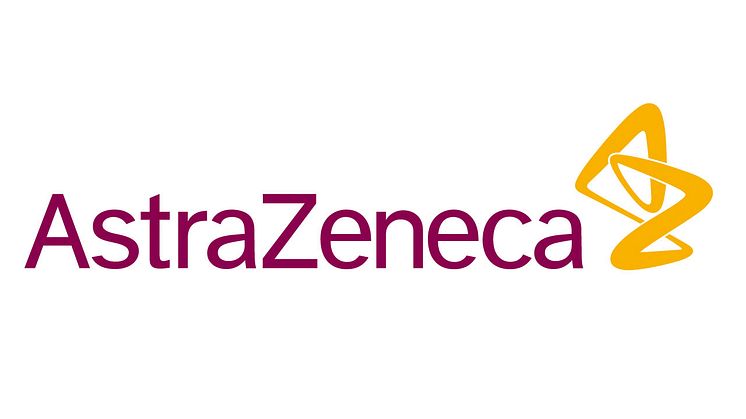Imfinzi approved in the US for less-frequent, fixed-dose use
Four-week dosing now approved in all Imfinzi indications, reducing medical visits and improving patient convenience.

Four-week dosing now approved in all Imfinzi indications, reducing medical visits and improving patient convenience.

AstraZeneca will present new research aimed at addressing key unmet needs facing patients with blood cancers at the 62nd American Society of Hematology (ASH) Annual Meeting and Exposition, held virtually from 5 to 8 December 2020.

The CALAVI Phase II trials for Calquence (acalabrutinib) in patients hospitalised with respiratory symptoms of COVID-19 did not meet the primary efficacy endpoint. The addition of Calquence to best supportive care (BSC) did not increase the proportion of patients who remained alive and free of respiratory failure. No new safety signal for Calquence was observed in the trials.

AstraZeneca and Amgen today announced positive results from the NAVIGATOR Phase III trial for the potential new medicine tezepelumab in patients with severe, uncontrolled asthma.

AstraZeneca’s Calquence (acalabrutinib), a next-generation selective Bruton’s tyrosine kinase (BTK) inhibitor, has been approved in the European Union (EU) forthe treatment of adult patients with chronic lymphocytic leukaemia (CLL), the most common type of leukaemia in adults.

AstraZeneca’s Brilinta (ticagrelor) has been approved in the US to reduce the risk of stroke, a leading cause of disability and death worldwide, in patients with acute ischemic stroke (National Institutes of Health Stroke Scale score ≤5) or high-risk transient ischaemic attack (TIA).

AstraZeneca and MSD’s Lynparza (olaparib) has been approved in the European Union (EU) for the 1st-line maintenance treatment with bevacizumab of patients with homologous recombination deficient (HRD)-positive advanced ovarian cancer.

AstraZeneca and MSD’s Lynparza (olaparib) has been approved in the European Union (EU) for patients with metastatic castration-resistant prostate cancer (mCRPC) with breast cancer susceptibility gene 1/2 (BRCA1/2) mutations, a subpopulation of homologous recombination repair (HRR) gene mutations.

AstraZeneca’s Forxiga (dapagliflozin) has been approved in the European Union (EU) for the treatment of symptomatic chronic heart failure with reduced ejection fraction (HFrEF) in adults with and without type-2 diabetes (T2D).

På väg att uppfylla helårsprognosen; verkställer strategin för hållbar tillväxt genom innovation
Under årets första nio månader levererade AstraZeneca tillväxt i försäljning, vinst och kassaflöde, något som underströks av en strategi för hållbar tillväxt genom innovation. De totala intäkterna låg i linje med förväntningarna och rörelseresultatet fortsatte att förbättras; resultattillväxten för

AstraZeneca has agreed to sell the commercial rights to Atacand (candesartan cilexetil) and AtacandPlus (a fixed-dose combination of candesartan cilexetil and hydrochlorothiazide) in around 70 countries globally to CheplapharmArzneimittel GmbH (Cheplapharm).

62% of patients stopped OCS use in largest ever steroid sparing trial in severe asthma
High-level results from the PONENTE Phase IIIb open-label trial showed Fasenra (benralizumab) eliminated the use of maintenance oral corticosteroids (OCS) in OCS-dependent asthma patients with a broad range of blood eosinophil counts.
Severe asthma is an often debilitating condition affecting approximately

AstraZeneca and Daiichi Sankyo Company, Limited (Daiichi Sankyo)’s Enhertu (trastuzumab deruxtecan) has received acceptance for its supplemental Biologics License Application (sBLA) and has also been granted Priority Review in the US for the treatment of patients with HER2-positive metastatic gastric or gastroesophageal junction (GEJ) adenocarcinoma.

China’s National Medical Products Administration (NMPA) has updated the label for AstraZeneca’s Forxiga (dapagliflozin) to include data from the DECLARE-TIMI 58 Phase III trial.

Clinical trials for the AstraZeneca Oxford coronavirus vaccine, AZD1222, have resumed across the world with regulators in the US, UK, Brazil, South Africa and Japan confirming that it was safe to do so.

A new subgroup analysis from the ground-breaking DAPA-CKD Phase III trial showed that AstraZeneca’s Farxiga (dapagliflozin), on top of standard of care, reduced the composite of worsening of kidney function or risk of cardiovascular (CV) or renal death in patients with chronic kidney disease (CKD), irrespective of the underlying cause of the disease.

AstraZeneca will present 84 abstracts, including 12 oral presentations and three late-breaking abstracts, across its industry-leading renal portfolio which includes roxadustat, Farxiga (dapagliflozin) and Lokelma (sodium zirconium cyclosilicate), at ASN Kidney Week 2020 Reimagined, taking place virtually from 22-25 October 2020.

AstraZeneca’s Tagrisso (osimertinib) has received acceptance for its supplemental New Drug Application (sNDA) and has also been granted Priority Review in the US for the adjuvant treatment of patients with early-stage (IB, II and IIIA) epidermal growth factor receptor-mutated (EGFRm) non-small cell lung cancer (NSCLC) after complete tumour resection with curative intent.

If approved, Forxiga would become the first SGLT2 inhibitor indicated for heart failure with reduced ejection fraction in patients with and without type-2 diabetes.

AstraZeneca’sTrixeo Aerosphere has been recommended for marketing authorisation in the European Union (EU) for maintenance treatment in adult patients with moderate to severe chronic obstructive pulmonary disease (COPD) who are not adequately treated by a combination of an inhaled corticosteroid and long-acting beta2-agonist or a combination of a LABA and a long-acting muscarinic antagonist.
